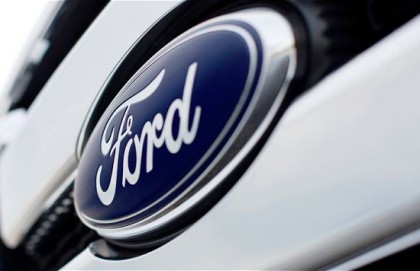Top Class Actions’s website and social media posts use affiliate links. If you make a purchase using such links, we may receive a commission, but it will not result in any additional charges to you. Please review our Affiliate Link Disclosure for more information.

The Ford acceleration lawsuit, which was filed in a West Virginia federal court, alleges that Ford vehicle models built between 2002 and 2010 with electronic throttles can allow unintended acceleration. The Ford vehicles in question, which include nearly three dozen Ford, Lincoln and Mercury nameplates, lack a brake override system. Ford began installing the system in its U.S. cars in 2010.
The Ford acceleration lawsuit blames the sudden unintended acceleration in Ford vehicles manufactured from 2002-2010 on the electronic throttle control (ETC) system and lack of a fail-safe system. An ETC electronically connects the accelerator pedal to the throttle.
The electronic throttle system takes control of the accelerator away from the driver. The Ford sudden acceleration lawsuit claims that Ford installed a brake override system in its North American cars starting in 2010 but failed to include it in older cars. Some of the vehicles named in the Ford class action lawsuit are:
- Taurus: model years 2008-2009
- Escape: model years 2005-2010
- Explorer: model years 2007-2010
If these older vehicles had been equipped with a fail-safe system such as a brake override, the driver would be able to regain control from the electronic throttle system by depressing the brake to slow down the vehicle. Lack of this system makes it difficult to stop the accelerated vehicle.
Beginning in 2002, Ford began manufacturing and selling Ford Vehicles with ETC systems that were allegedly subject to sudden unintended acceleration and without an adequate fail-safe to assist in such sudden uncontrollable acceleration. Ford allegedly failed to inform its customers who purchased and/or leased their vehicles that they were unsafe and the problem lied in the faulty design of the ETC.
Ford received at least hundreds of reports from owners of the vehicles that its ETC was problematic and needed a fail-safe protection.
Those using these vehicles were not only put in danger, but the vehicles they bought and/or leased allegedly decreased in value due to the faulty design. From 2002-2013, Ford marketed its vehicles as “safe” and that Ford itself was a “safety leader.” However, Ford allegedly became aware of the design defects beginning in 2002 and continued to manufacture, advertise, and sell the vehicles without any disclosure to its customers.
This Ford Sudden Acceleration Class Action Lawsuit is Case No.: 12-cv-06529, in the U.S. District Court for the Southern District of West Virginia (Huntington).
In general, Ford sudden acceleration lawsuits are filed individually by each plaintiff and are not class actions.
Do YOU have a legal claim? Fill out the form on this page now for a free, immediate, and confidential case evaluation. The attorneys who work with Top Class Actions will contact you if you qualify to let you know if an individual lawsuit or class action lawsuit is best for you. Hurry — statutes of limitations may apply.
ATTORNEY ADVERTISING
Top Class Actions is a Proud Member of the American Bar Association
LEGAL INFORMATION IS NOT LEGAL ADVICE
Top Class Actions Legal Statement
©2008 – 2024 Top Class Actions® LLC
Various Trademarks held by their respective owners
This website is not intended for viewing or usage by European Union citizens.
Get Help – It’s Free
Join a Free Ford Unintended Acceleration Class Action Lawsuit Investigation
If you purchased, owned or leased a 2002-2010 model year Ford vehicle and experienced sudden unintended acceleration, you may be eligible to join a free class action lawsuit investigation. Fill out the form for a free case evaluation.
An attorney will contact you if you qualify to discuss the details of your potential case.
Oops! We could not locate your form.












